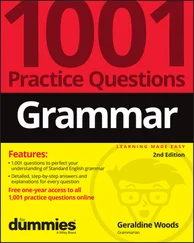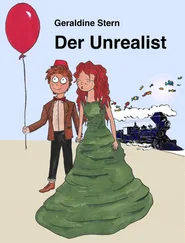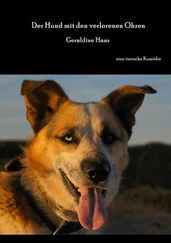Because cries issued from the room that had been Mr. Clement’s library, I expected that the worst cases were within, and that I would find our surgeon there. Dr. McKillop is a short, stocky man with muscled forearms as hairy as a Barbary ape’s. He was turned away from me, working on the wrecked arm of Seth Millbrake, a wheelwright from Cambridge. I noted that even the back of McKillop’s coat was blood-spattered, indicating the work he had accomplished whilst I’d tarried to wallow in my own exhaustion and despair. I resolved to think better of him. At his feet lay a forearm, a foot, and a leg, sheared off at the knee. McKillop lifted his boot from this goreslicked floor and commenced to use its sole as a strop for his scalpel.
Seth was pleading with the surgeon, as such men always do, to save his limb. But the missile had shattered the bone near the elbow, splintering it into a score of white needles now sewn all through the shredded muscle.
My resolution regarding McKillop was tested within an instant when the surgeon, turning to wipe his knife on a piece of rag, noticed me. “March! About time! Get over here!” he barked, as one might call to an errant dog. “Hold his shoulders,” he instructed, and I did, concentrating on Millbrake’s face so that I would not have to watch McKillop’s ferreting. Millbrake’s eyes were all pupil—black with agony and fear. His tremors shook the table he lay upon. I brought my head close to his ear and whispered the words of the psalm: “Then they cried to the Lord in their trouble, and he delivered them from their distress…” Just then, McKillop’s instrument hit a vessel and a spurt of warm liquid flew into my eye. I could not let go my grip on the writhing body to wipe it away, so I went on: “He sent forth his word and healed them…” I tasted iron as the blood trickled down the side of my nose and found my lips. Millbrake went limp under my hands then, and I thought that he had fallen into merciful unconsciousness. But when McKillop lifted his hand from where he had pressed it down upon the spurting vessel, I saw that the fluid flowed without pulse, and realized that the man’s life had ended. McKillop grunted and turned to his next patient, who had taken a ball in the stomach. He plunged a finger into the wound and felt around in a desultory manner for a few moments. Then he withdrew his hand, shrugging. “When balls are lost in the capacity of the belly one need not amuse himself by hunting for them.” Fortunately, the wounded man was unconscious and did not hear the grim sentence the surgeon had just passed. As McKillop moved on to attend to a man whose skull was stove in like a crushed tin mug, I lifted Millbrake’s half-severed limb, which was twisted most unnaturally, and arranged it on his breast, then set the other arm across it. “Philbride, over in the corner there,” McKillop said without raising his eyes from his work. “Shrapnel in his breast. Nothing I can do. He was calling for a chaplain. Better make it quick.”
A farm boy would never have mistaken haystacks for tents. But they hadn’t sent a farm boy to scout the Virginia shore. Philbride was a mill-town lad, accustomed to made roads and brick walls and a vista no wider than a street. At night, in thick fog, his fear had filled a harvested field with an enemy company; sentryless, seemingly, set there as if in answer to our general’s desire for an easy victory. Poor Philbride. He knew that his erroneous report was the crumbled footing on which our whole day’s edifice had collapsed. But it was not the only mistake, nor even the gravest. And that was what I whispered to the youth, who could scarce draw a breath and whose sweat, despite the cold night air, pearled on his pale skin.
I wish his eyes had grown less desperate, his shallow breathing deeper as I spoke. But I cannot say so. “Will of God,” “bosom of our Saviour,” perhaps these were the words he wanted. Perhaps it was in the hope of such preachments that he had called out for a chaplain. Instead, what I told him was the plain truth: that today’s business was neither God’s work nor his will, but a human shambles, merely. I would have gone on to say that it was no matter, that one botched battle did not make a war, and that the cause we served was worth the price paid, here and in perhaps a hundred other places in the days to come. But all I had done that day had gone ill, and my ministrations to that boy were no different. He sat up suddenly, desperate for breath. His pierced lungs, it seemed, couldn’t draw air for him, so I just held him there, his mouth gaping like a landed fish, while his skin turned slowly to the color of oatmeal.
Afterward, I went in search of some container to haul away the litter of amputated limbs, the presence of which, I judged, could only work on the fears of the wounded. That chore accomplished, I looked for water to clean off the blood. Finding the ewers empty, I gathered as many as I could carry and, picking my way through the ruined men, made my way to the well house.
Even in candlelight, even after twenty years, even with her back turned, I recognized her. She was bending to fill pitchers from the well bucket, and there was something in the curve of her back, the sway at the waist, and the way she came slowly erect. As I had stood outside on the steps, gathering my courage to enter this place, it had fallen into my mind that Grace might be the slave the private had mentioned. I wanted it to be so. I dreaded it be so. At the moment I recognized her, longing and dread collided with a force that made me clumsy, so that a ewer slipped in my hand and I fumbled to keep hold of it. She, of course, could not have entertained the possibility of seeing me. So that when she turned, all she saw was yet another in the roll of the wounded, a coatless soldier without token of rank, whose blood-spattered visage spoke of some grievous hurt.
“Let me take those, soldier,” she said, reaching for the ewers. That silvery voice, so distinctive. “You are kind to try to help, but you shouldn’t be walking about with your wound untended.”
“I’m not wounded, Miss Grace. I was helping the surgeon with an amputation.”
Her head, tied just as I remembered in an elaborate rigolette, went up like an animal, scenting. She raised the lantern that held her candle and looked at me, hard. “Do I know you, sir?”
“You probably wouldn’t remember me—” Even as I said the words I realized how ridiculously they rang. How would she not remember the foolish youth who had been the source of her agony?
“My name is March…I was here in forty-one…”
“Mr. March! The teacher!”
I could not tell, in the dark, if she intended irony by addressing me so, or whether the warmth in her voice was genuine. “Forgive me, I did not expect to see you a soldier.”
“I am serving as a chaplain.”
She raised her chin in a slight nod, as if that fit her memory of me, and held out her hand. I took it, noting as I did so that it was chapped and calloused.
Something must have shown in my face, for when she drew back her hand, she looked down at it self-consciously. “So many things have changed here, Mr. March. Some of them you see for yourself. Others are less evident. Perhaps we will have time to speak of it, if you would care to, but now the wounded men are thirsty…”
“Of course,” I said. “We both have much to do.” I let her go and went to my own duty, which was to bring comfort where I could. I was sitting in the oval entrance hall sometime toward dawn, my back propped against the stairwell, when exhaustion finally claimed me. I had taken the hand of a gravely injured man, and I held it still when I awoke. But it was cold by then, and rigid.
Grace was standing over me, pouring from a jorum of coffee. I closed the eyes of the dead man and stood stiffly, every fiber of my body complaining. As I steadied myself on the stair rail, I noted that the wood was rough under my hand. Grace ran a finger over the ruined banister. “My doing, I fear: I brought Mr. Clement’s horse in here, during the fighting,” she said. “He chewed the banister, as you see, and then of course the army found him anyway, and took him as contraband…”
Читать дальше












